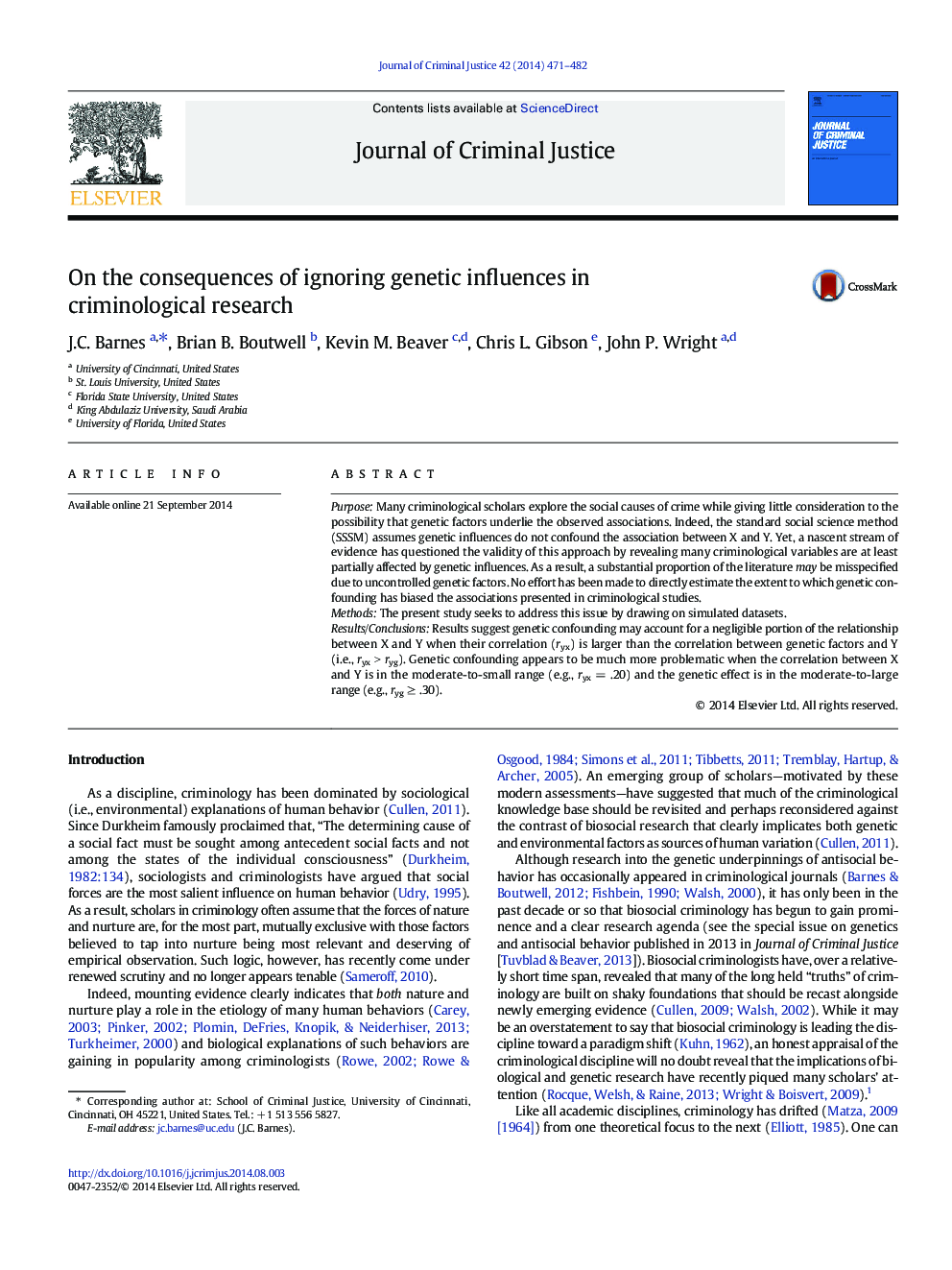| کد مقاله | کد نشریه | سال انتشار | مقاله انگلیسی | نسخه تمام متن |
|---|---|---|---|---|
| 882705 | 912015 | 2014 | 12 صفحه PDF | دانلود رایگان |
• Criminologists often ignore genetic influences
• There is reason to suspect genetic influences confound many associations in criminology
• This paper simulates genetic confounding
• Findings suggest genetic confounding may be problematic for criminological research
PurposeMany criminological scholars explore the social causes of crime while giving little consideration to the possibility that genetic factors underlie the observed associations. Indeed, the standard social science method (SSSM) assumes genetic influences do not confound the association between X and Y. Yet, a nascent stream of evidence has questioned the validity of this approach by revealing many criminological variables are at least partially affected by genetic influences. As a result, a substantial proportion of the literature may be misspecified due to uncontrolled genetic factors. No effort has been made to directly estimate the extent to which genetic confounding has biased the associations presented in criminological studies.MethodsThe present study seeks to address this issue by drawing on simulated datasets.Results/ConclusionsResults suggest genetic confounding may account for a negligible portion of the relationship between X and Y when their correlation (ryx) is larger than the correlation between genetic factors and Y (i.e., ryx > ryg). Genetic confounding appears to be much more problematic when the correlation between X and Y is in the moderate-to-small range (e.g., ryx = .20) and the genetic effect is in the moderate-to-large range (e.g., ryg ≥ .30).
Journal: Journal of Criminal Justice - Volume 42, Issue 6, November–December 2014, Pages 471–482
